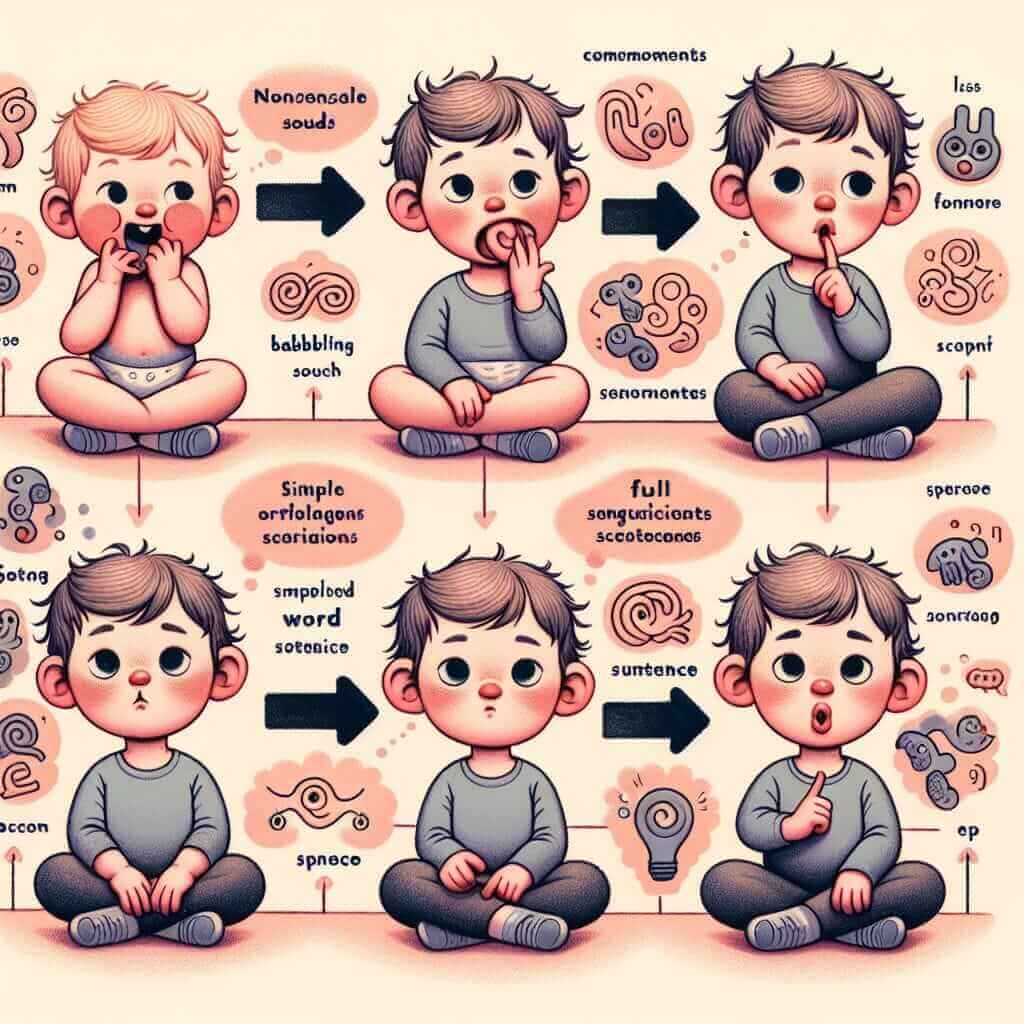Understanding Language Acquisition in the IELTS Reading Section
As an IELTS instructor with over two decades of experience, I often encounter students who find the Reading section daunting, especially when faced with complex topics like language acquisition. “How babies learn language” is a recurring theme in IELTS Reading passages, drawing upon psycholinguistics and developmental psychology.
Understanding the core concepts of language acquisition is not only crucial for tackling such passages but also for demonstrating your analytical and comprehension skills to the examiner. This article aims to equip you with the knowledge and strategies to confidently approach IELTS Reading passages on this topic.
Deciphering the Science of Language Acquisition
The IELTS Reading section often features passages exploring various theories and research findings related to how babies learn language. Here’s a breakdown of key concepts:
1. Innateness vs. Learning:
- Nativist Theory: This theory, championed by Noam Chomsky, proposes that humans have an innate predisposition for language learning, often referred to as the “Language Acquisition Device” (LAD).
- Behaviorist Theory: This perspective, primarily associated with B.F. Skinner, suggests that language is learned through imitation, reinforcement, and conditioning.
- Interactionist Theory: This approach posits that language development is a complex interplay between innate abilities and environmental factors.
2. Stages of Language Development:
Passages might discuss the typical stages babies go through as they acquire language:
- Cooing and Babbling: Infants experiment with sounds.
- One-Word Stage: Children begin to utter single words with meaning.
- Two-Word Stage: Simple phrases start to emerge.
- Telegraphic Speech: Children string together more words, often omitting grammatical elements.

3. Factors Influencing Language Acquisition:
- Exposure to Language: The quantity and quality of language input babies receive play a vital role.
- Social Interaction: Interaction with caregivers and other speakers is crucial for language development.
- Cognitive Development: A child’s cognitive abilities influence their capacity to understand and use language.
Mastering IELTS Reading Passages on Language Acquisition
1. Analyze the Passage Structure:
- Identify the main arguments and supporting evidence presented.
- Pay close attention to headings, subheadings, and topic sentences.
2. Skim and Scan for Keywords:
- Look for keywords related to language acquisition theories, stages, and factors influencing development.
3. Focus on Understanding, Not Memorizing:
- Aim to grasp the overall message and key arguments rather than trying to memorize every detail.
Example: IELTS Reading Passage Excerpt
“The ‘critical period hypothesis’ suggests that there is a limited window of opportunity, typically before puberty, during which language acquisition is most effortless. This hypothesis stems from observations that children who experience language deprivation during this period often struggle to achieve native-like fluency later in life.”
Question: What does the passage suggest about the critical period hypothesis?
Answer: The passage implies that early childhood is a crucial time for language acquisition and that language deprivation during this period can have long-term consequences.
Tips for Success:
- Familiarize yourself with common question types in the IELTS Reading section, such as True/False/Not Given, Multiple Choice, and Matching Headings.
- Practice active reading techniques, such as highlighting keywords, underlining main ideas, and taking notes.
- Expand your vocabulary related to language acquisition and child development.
Conclusion
By understanding the fundamental concepts of language acquisition and employing effective reading strategies, you can approach IELTS Reading passages on this topic with greater confidence. Remember, consistent practice and exposure to diverse reading materials are key to excelling in the IELTS Reading section.